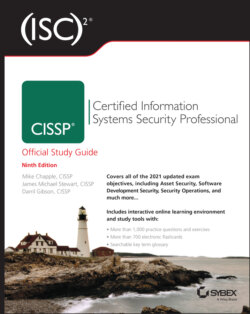Читать книгу (ISC)2 CISSP Certified Information Systems Security Professional Official Study Guide - Mike Chapple - Страница 41
Accountability
ОглавлениеAn organization's security policy can be properly enforced only if accountability is maintained. In other words, you can maintain security only if subjects are held accountable for their actions. Effective accountability relies on the capability to prove a subject's identity and track their activities. Accountability is established by linking an individual to the activities of an online identity through the security services and mechanisms of auditing, authorization, authentication, and identification. Thus, individual accountability is ultimately dependent on the strength of these processes. Without a strong authentication process, there is doubt that the person associated with a specific user account was the actual entity controlling that user account when the undesired action took place.
To have viable accountability, you must be able to support your security decisions and their implementation in a court of law. If you are unable to legally support your security efforts, then you will be unlikely to be able to hold an individual accountable for actions linked to a user account. With only a password as authentication, there is significant room for doubt. Passwords are the least secure form of authentication, with dozens of different methods available to compromise them. However, with the use of multifactor authentication, such as a password, smartcard, and fingerprint scan in combination, there is very little possibility that any other individual could have compromised the authentication process in order to impersonate the person responsible for the user account.
